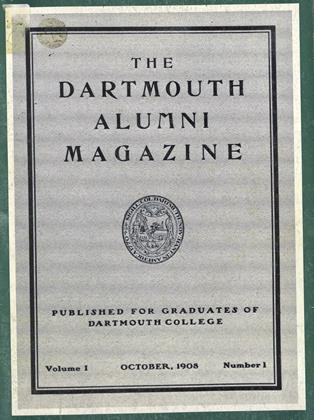THE SIBERIAN RESERVOIR by lan Bush Houghton Mifflin Company, 1983. 465 pp., $16.95
Lan Bush's first novel will not be easy for booksellers to shelve: science fiction? spy story? suspense drama? It is all of these, and more.
Since it would spoil readers' enjoyment to tell too much of the plot, let me simply say that it revolves about a Soviet scheme in the late 1960s to launch bacteriological warfare against the United States (and incidentally the rest of the world) and the efforts of two CIA officials who discover the scheme to defuse it in time. The two a seasoned American from OSS days, Wallace Sharpies, and his brilliant assistant, a young Danish scientist named Arne Jensen are teamed with a KGB agent, who defects and is eventually "played back": a resourceful Pole, Tadeucz Milstein. The Soviet plan is so subtle and insidious that Sharpies finds it necessary to conceal their efforts from the intelligence and counter-intelligence community including the Director of CIA. There is indeed as much suspense in this subterfuge as in their outwitting the übiquitous Russians on three continents. The story unfolds in bars and pubs, in "safe houses" and not-so-safe houses, in Novosibirsk, Prague, Stockholm, Seattle, Atlanta, Hong Kong, Hangchow, and of course, Washington (Langley) and Moscow.
Lan Bush, a medical physiologist by profession and a member of the Dartmouth Medical School faculty, is well equipped to deal with the technical aspects of the Russians' diabolic scheme. His painstaking explanations (through his actors) of neurophysiology, epidemiology, and amygdaloid complex are convincing enough to silence any layman. He has meanwhile familiarized himself enough with historical personalities (like Khrushchev) and the general character of actors he invents (Soviet and American intelligence officials of all ranks) to avoid any improbable behavior. And he has studied—insofar as he could—geographic locale to make the settings of his action plausible; where personal research is impossible (as in the underground corridors of Lubyanka), he improvises sensibly. In a word, he does not strain credulity.
One gains an impression that for all the meticulous detail Dr. Bush introduces to make his bacteriological plot believable, it is the intelligence community itself which beguiles him. As Americans in the past decade have been intrigued by Le Carre's London Circus, lan Bush, an Englishman, seems bewitched by Washington's CIA and more particularly the devious way it operates. In the same way that the romanpolicier is distinguished from a straight detective story by its greater interest in the habits of the police establishment rather than the crime proper, this novel is more interested in patterns of espionage and counter-intelligence than in the Siberian reservoir itself.
The Siberian Reservoir, as a first novel, is not without drawbacks. The dialogue, for instance, is often weak; certain mannerisms become monotonous. Sharpies, for instance, "nods quietly" and fiddles with his pipe too often; Milstein, a Pole, must have a wider range of expletives than
"Mein Gott!" and "Gott in Himmel!" There is also unnecessary clutter: episodes described in some detail that appear to have little intrinsic bearing on the story (Sharpies' visit to an English don to discover the meaning of "Siberian Reservoir," when this information might easily have been discovered in published literature); characters introduced with some care, only to be summarily dropped and never heard of again (e.g., the Okinawan station chief Lambert). And there are too many ends left dangling: the novel closes, for instance, without any clear revelation of the fate of Jensen and Milstein, stranded behind the Iron Curtain.
These shortcomings, however, do not significantly deter from the compelling thread of the story. This is, let us hope., a first novel. Ian Bush must write again.
Professor McLane is, among other things, theRussian expert in the government department atthe College.
 View Full Issue
View Full Issue
More From This Issue
-
 Feature
FeatureDoubt and Passion: Notes on Contemporary American Novelists
October 1983 By Horace Porter -
 Feature
FeatureArtists in Residence
October 1983 By Churchill P. Lathrop -
 Feature
Feature40 Years at the Helm
October 1983 By Charlie Widmayer '30 -
 Feature
FeatureRudolph Ruzicka's Two Dartmouth Medals
October 1983 By Edward Connery Lathem -
 Feature
FeatureMeet Ted Leland
October 1983 By Brad Hills '65 -
 Feature
FeatureThe Widmayer Touch
October 1983 By Cliff Jordan '45
Charles B. McLane '41
-
 Article
ArticlePasternak and the Russian Community
JANUARY 1959 By CHARLES B. McLANE '41 -
 Books
BooksTHE SOVIET DESIGN FOR A WORLD STATE.
July 1960 By CHARLES B. MCLANE '41 -
 Books
BooksNO SUBSTITUTE FOR VICTORY.
DECEMBER 1962 By CHARLES B. McLANE '41 -
 Books
BooksJUSTICE IN THE USSR:
MARCH 1964 By CHARLES B. MCLANE '41 -
 Books
BooksSOVIET CRIMINAL LAW AND PROCEDURE: THE RSFSR CODES.
MAY 1966 By CHARLES B. MCLANE '41 -
 Books
BooksInside the Enigma
JANUARY/FEBRUARY 1984 By Charles B. Mclane '41
Books
-
 Books
BooksThe French Revolution and Napolean
November 1917 By A.H.B. -
 Books
Books77 ANTIPOEMS.
JUNE 1965 By DAVID C. PETRAGLIA '58 -
 Books
BooksThe Biology of Death
June, 1923 By H. G. Coar -
 Books
BooksTHE IROQUOIS EAGLE DANCE AN OFFSHOOT OF THE CALUMET DANCE.
February 1954 By ROBERT A. McKENNAN '25 -
 Books
BooksSTEEL DAMS
January 1936 By Robert Fletcher -
 Books
BooksTHE MONEY MARKET AND MONETARY MANAGEMENT.
MARCH 1965 By WILLIAM A. CARTER '20


